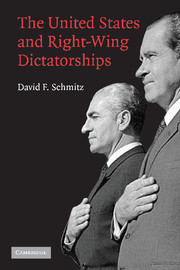5 - A Fundamental Tenet of Foreign Policy
Jimmy Carter and Human Rights
Published online by Cambridge University Press: 05 June 2012
Summary
From the first day of his presidency, Jimmy Carter set out to fundamentally alter the direction of American foreign policy. Coming to office after the disillusionment brought about by the Vietnam War, Watergate, and the Church Committee's revelations concerning American support for right-wing dictators and covert activities abroad, Carter promised to take American foreign policy in a new direction by shaping it around the principles of human rights and nonintervention. Carter faced the challenge of developing and implementing his new policy in opposition to the continuing Cold War axiom of containment of the Soviet Union. This was the central dilemma the president faced as he attempted to change American policy toward right-wing dictators. The tension between the quest for a more humane foreign policy and the old imperatives of security and stability was compounded by the economic problems that beset the United States throughout the 1970s. Carter recognized the limits these economic problems presented concerning American power and believed they made it essential that a new direction for American foreign policy be found. His human rights policy sought to create a post–Cold War foreign policy that placed American ideals first, changed the fundamental nature of American relations with the Third World, and reduced the costs of the Cold War while still protecting essential American interests.
Carter's policy built upon the changes various members of Congress and others were promoting by the mid-1970s.
- Type
- Chapter
- Information
- The United States and Right-Wing Dictatorships, 1965-1989 , pp. 143 - 193Publisher: Cambridge University PressPrint publication year: 2006



